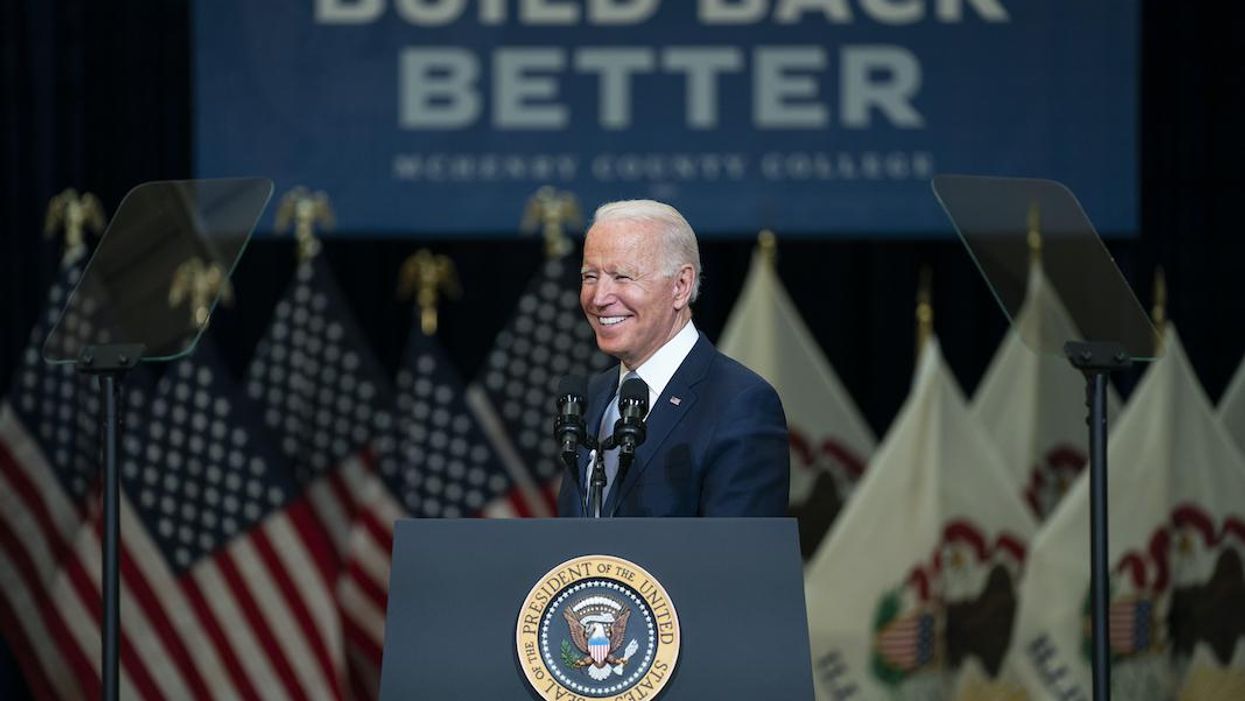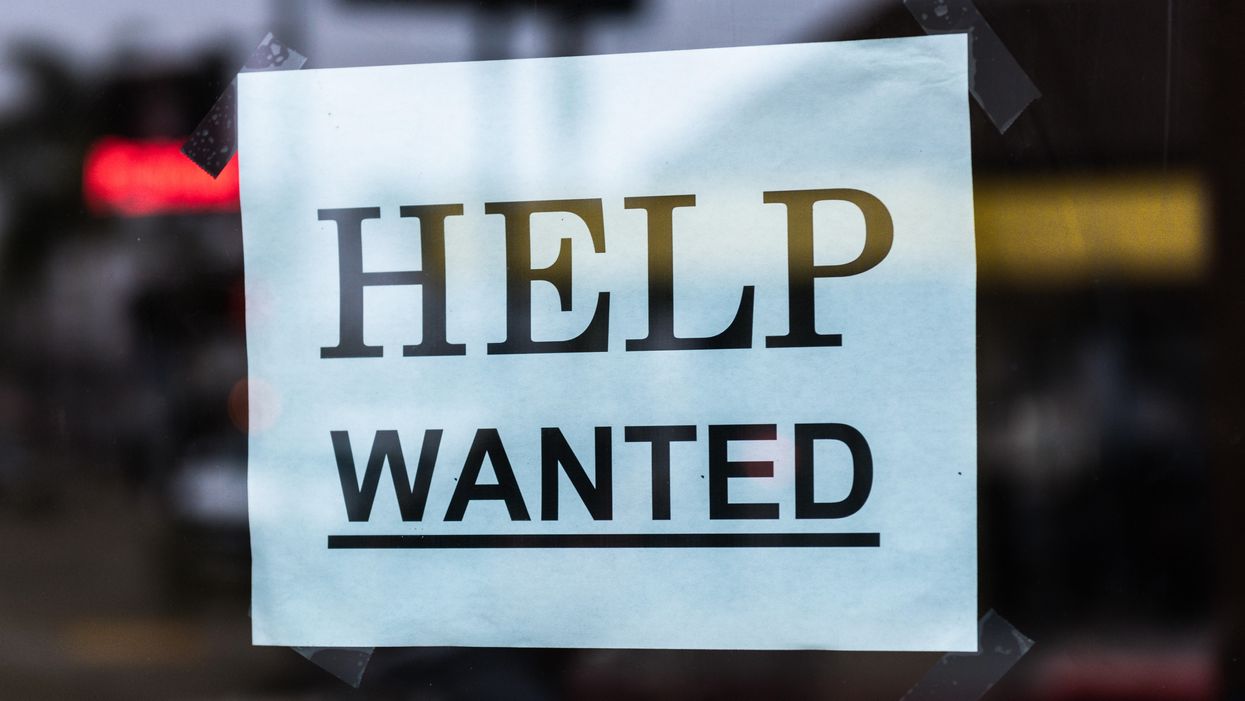Chamber of Commerce Earns Big Pinocchio Nose For False Claim About Build Back Better
Reprinted with permission from The American Independent
The nation's largest corporate lobby is trying to defeat President Joe Biden's $1.75 trillion climate and caregiving infrastructure plan, arguing it would make inflation even worse.
In a new radio ad released Wednesday, the political arm of the U.S. Chamber of Commerce presses Sen. Kyrsten Sinema (D-AZ) to oppose the Build Back Better plan over inflation concerns.
"Higher gas prices and skyrocketing grocery bills are crippling Arizona families. But we count on Sen. Kyrsten Sinema to be our voice, someone who will stand up for us. Like when it comes to the reconciliation bill that would add to inflation," a narrator claims.
Constituents are urged to call Sinema and tell her to oppose Build Back Better and "stand up for Arizona families." The White House has argued that the bill will help hundreds of thousands of Arizona families by providing more affordable child care, health care, long-term care, and housing.
Last Friday, the lobbying group demanded Congress halt consideration of the package.
"With prices rising 6.8% over the past year, squeezing budgets for families and small businesses alike, it is time for Congress to hit pause on the reconciliation bill and not add any more fuel to the inflationary fire," Neil Bradley, the group's executive vice president and chief policy officer urged. "Rather than 'building back better'– the reconciliation bill will just be bringing back bad inflation."
The lobbying behemoth, which represents many of the nation's largest corporations, does not like the fact that Build Back Better would be partially funded by collecting more in revenue from the nation's largest corporations.
It argues, "The proposed tax increases, including a new corporate minimum tax on book income, a new tax on stock buybacks, and tax increases on U.S. business income earned abroad, will harm the recovery and hamstring America as we work to compete globally, especially with China."
But it has focused much of its public opposition on the idea that inflation is high and the package "will make it worse." In November, the group published a roundup of "non-partisan and center left experts" who have stated Build Back Better would "add to inflation over the next year."
The inflation argument has been a common talking point for Republicans in Congress and their dark-money backers. But the opposite is likely true.
The White House Council of Economic Advisers has argued the plan would be an "antidote" to long-term inflation, increasing economic capacity and offsetting its costs with new revenue or spending cuts.
Nobel Prize-winning economists and major financial ratings agencies have concurred, saying it will likely have a negligible effect on inflation in the short term and could curb it over a longer period of time.
Even many of the economic experts the group cited while warning of inflation have publicly said Build Back Better will not significantly fuel inflation.
Jason Furman, a former Council of Economic Advisers chair, wrote a November 15 Wall Street Journalopinion piece urging passage of Build Back Better to address the economy's "chronic problems"
"Build Back Better would have a minuscule impact on inflation over the medium and long term," he argued. "The potential short-term effects of Build Back Better on inflation are dwarfed by the good it would do."
Former Treasury Secretary Larry Summers, who has been frequently cited by congressional Republicans as an inflation soothsayer, has also endorsed the package.
He wrote in a November Washington Post piece that it "would spend less over 10 years than was spent on stimulus in 2021. Because that spending is offset by revenue increases and because it includes measures such as child care that will increase the economy's capacity, Build Back Better will have only a negligible impact on inflation."
Mark Zandi, chief economist for Moody's Analytics, told Reuters in November that Build Back Better and the now-enacted Infrastructure Investment and Jobs Act "do not add to inflation pressures, as the policies help to lift long-term economic growth via stronger productivity and labor force growth, and thus take the edge off of inflation."
In a Fox Business interview on Wednesday, Zandi said "the inflation we're observing now, the high inflation — that has nothing to do with fiscal policy, that has nothing to do with the Build Back Better agenda." He added that it would lift long-term economic growth by "raising labor force participation, so lowering the cost of work."
The House passed its version of Build Back Better on Nov. 19, despite unanimous GOP opposition. The bill is now pending in the Senate.
A spokesperson for the organization did not immediately respond to an inquiry for this story.












